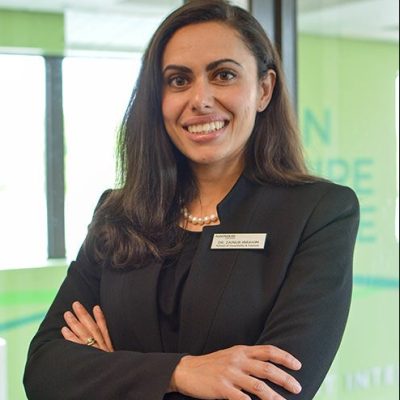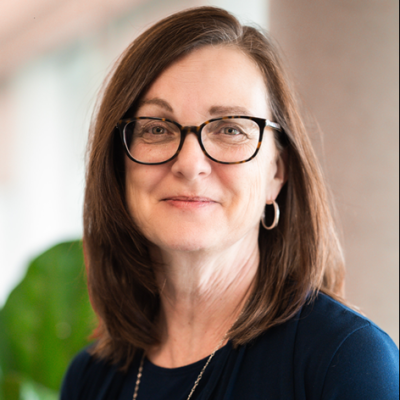The One Where We Went to the Mall
Zainub Ibrahim and Angela Lyrette
Primary Research: An out-of-class experience
Imagine a classroom with funky furniture, a bookstore, inexpensive school supplies and a food court. Add to that access to real-time human centred research, rich micro-economic case study material, professional industry experts, and top of the line communications resources. Turns out you can get that classroom at the mall, specifically at Les Promenades Gatineau, a short bus ride from the Ottawa campus of Algonquin College.
Professor Zainub Ibrahim embodies Algonquin College’s Academic Plan priorities, specifically: creating programming that reflects elements of an experiential polytechnic education. Zainub collaborated with Raymundo Patino, General Manager, and Tsvetan Stanchulov, Assistant Property Manager (and a Business Hospitality & Tourism Management grad!) of the mall to develop in-class research activities and projects using current issues, challenges and opportunities faced by the organization.
Partner ‘clients’ Raymondo and Tsvetan attended initial meetings with the students virtually using online conference software or in person to discuss their key and priority issues. Groups selected one of the issues to explore over the course of the term using knowledge, skills, and teambuilding techniques learned throughout their program.
Zainub then organized a class field trip to the mall to gather data with as many students as were available. On site, students actively engaged by recognizing key points discussed in the initial meeting by asking relevant questions specific to their research topics, and making observations about the mall’s operations in relation to their research problems. After the visit, student groups expressed their gratitude by emailing the client, including each team member’s biography and photo.
Classroom Assessment and Activity Design Ideas
Capstone assignments can draw on concepts taught in previous levels and courses. An ideal capstone project includes:
- Real-world problem solving
- Written research proposals
- Collection of primary data to define key research priorities
- Analysis of secondary data using industry-standard software
Through collaboration with industry partners, students experience how research can be applied to solve business challenges and inform decision-making processes.
To prepare students for the project, Zainub arranged a class visit from Dr. Elizabeth Pena, the in-class projects coordinator from the Office of Applied Research, who explained the concept of applied research and its significance. Students in this program must complete a course on research ethics and sign a non-disclosure agreement to ensure confidentiality.
She then hosted a Zoom meeting with the General Manager of Les Promenades, who provided insights into the research priorities, challenges, and opportunities faced by the mall. Each team chose a topic of interest and began conducting background research. In subsequent follow up meeting with their clients, students actively engaged by recognizing key points previously discussed and asked relevant questions specific to their research topics, and made observations about the mall’s operations in relation to their research problems.
Key Takeaways for Workplace Skill Development
Although the majority of the capstone course assessments are group work, students benefit from individual graded activities related to the group projects in addition to standard self- and peer evaluations. This supports the development of accountability, reflection, and leadership skills. Consider using prompts such as:
- What do you think is the organization’s primary issue?
- Formulate a potential hypothesis to address the problem
- Support your thoughts and hypothesis with secondary research
Zainub feels fortunate to work with a highly engaged client who understands the course structure and expectations (the Assistant Property Manager is an alumnus of our program). This collaboration highlights the importance of effective planning and managing expectations with clients for successful experiential learning. In the future, she will continue to emphasize early client engagement, clear communication of expectations, and ensuring that students are fully prepared for real-world applications of their research. Zainub encourages her students to submit their work to the In-Class Projects Showcase on Applied Research Day and for publishing in Tourism Cases, a growing collection of practical and educational case studies for students, researchers, practitioners and organizations.
Check out Zainub Ibrahim’s Flexible Syllabus – Where the second half is TBD.




